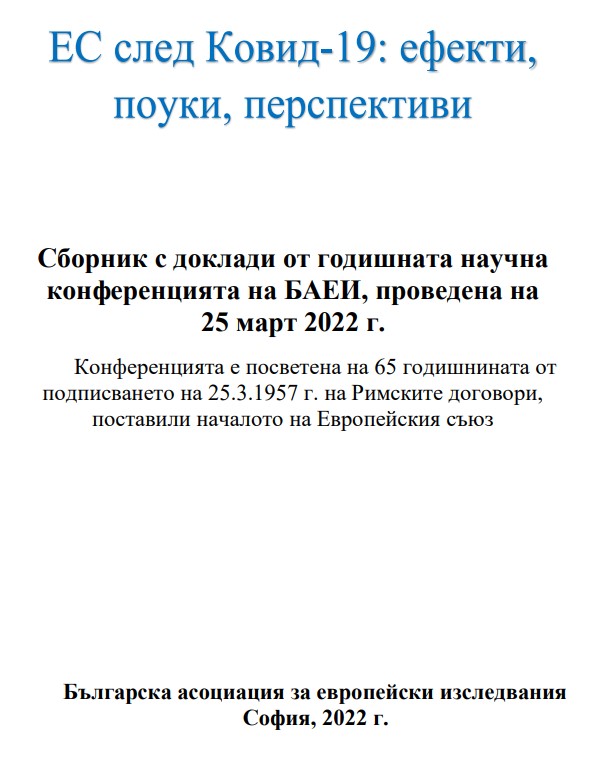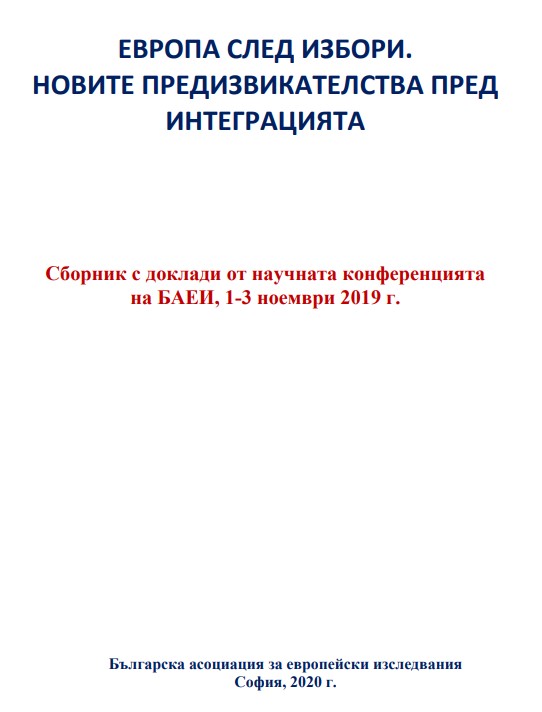
„The Pandemics“ of the European Union – a Crisis of Trust, Leadership and Values
Европейският съюз след изборите за Европейски парламент – обществени нагласи и политическа реалност
Keywords: European Union; European Parliament; Bulgaria; Elections; Citizens
In the European Parliament elections of May 2019 citizens cast their vote on how they want the European Union to move forward in the next five years. In times of crisis, sharp political opposition, fake news, populism and the search for a unite European approach to the problems and challenges of the day, voters have shown that they want the people to whom they have delegated power to show common sense, ability to conduct dialogue and achieve compromise and above all – clear results. The paper is an attempt to take stock of the results of the European Parliament elections. A special focus is placed on the picture in Bulgaria, as well as on the debate on the election of the President of the European Commission.
More...
